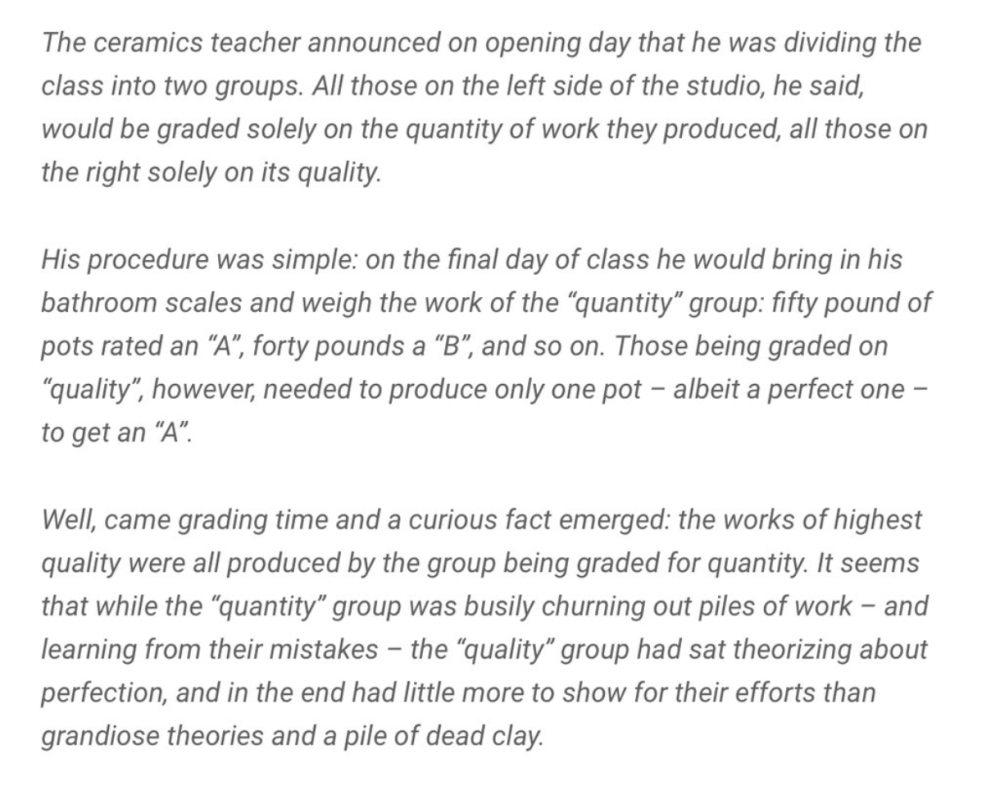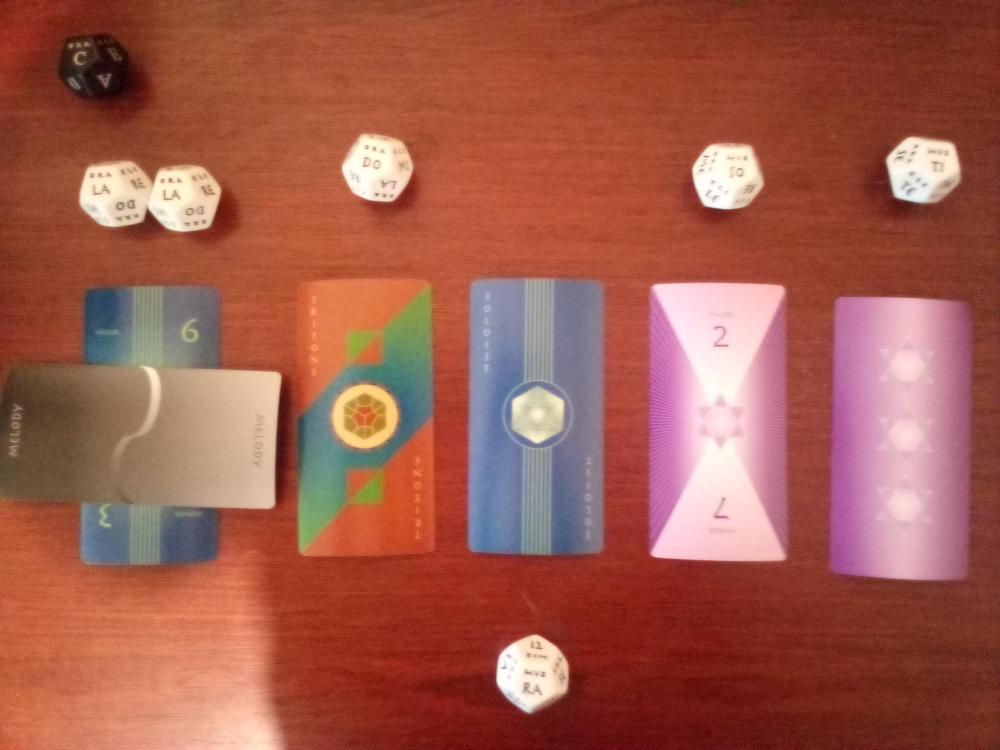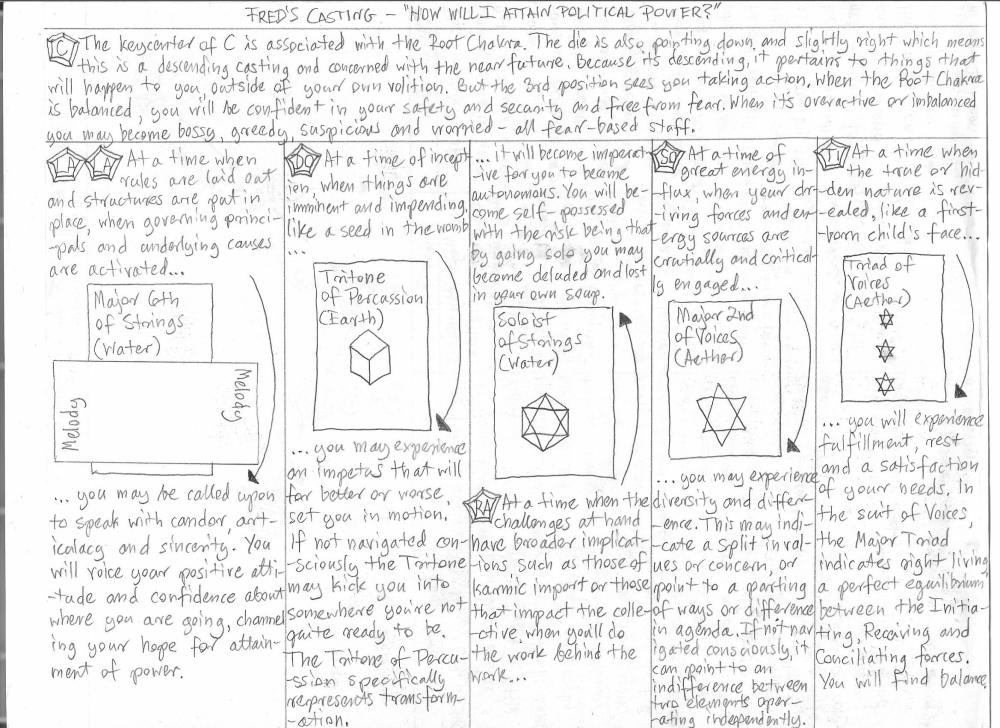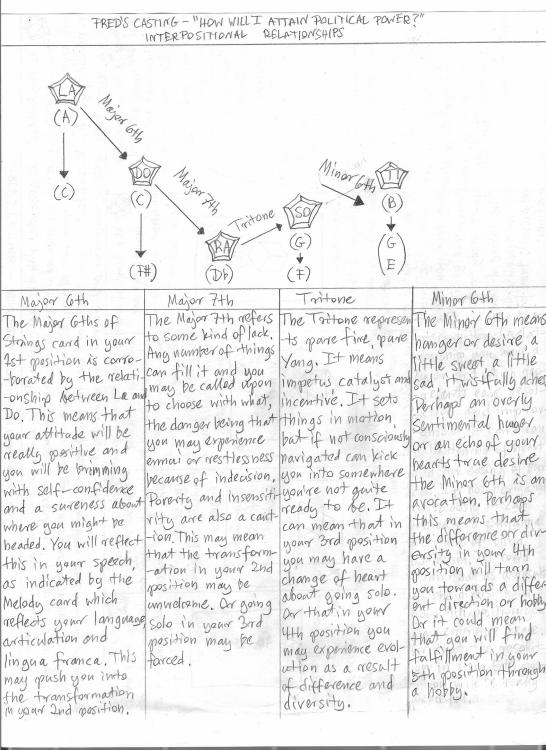All Activity
- Past hour
-
therealAJGS started following a weird composition
- Today
-
Thanks for checking this out! Depends on the idea, I don't have a formula. This time it was just about adding voices to an unchanging melody while keeping it very simple. Other times I build everything off of a harmonic progression. Sometimes a rhythmic cell is really interesting and it starts from there. But most importantly, I wish I had a better answer lol
-

How do I compose faster?
luderart replied to latebeethoven_addict's topic in Composers' Headquarters
1. Use a faster writing pen! 2. Use a faster computer/laptop. 3. Think faster. For some more serious advice: 1. Dedicate the time for composition. 2. Don't force yourself to compose. Let the inspiration come and you will compose. At least that's the way I approach it. I have heard others advise that you have to start composing and the inspiration will follow. But for me, it isn't like that. 3. For inspiration: a) Listen to other composers' music. b) Check for calls for scores and competitions. These will give you ideas for composition. -
.thumb.png.8b5b433a341551e913a34392660bc95b.png)
How do I compose faster?
PeterthePapercomPoser replied to latebeethoven_addict's topic in Composers' Headquarters
I think this question comes from the wrong place philosophically. When one asks the question "How do I compose faster?" one is really treating themselves like a machine, the assumption being that the more trial and error, the more one learns. Take this anecdote: While this anecdote addresses the concept of craft, it doesn't really get at inspiration. I believe that the question any artist or composer should really be asking themselves is "How do I enjoy music more?" or "How do I enjoy writing/creating more?". Without addressing this question one is quickly going to crash into a wall called "burnout". The pattern behind one's creative output is likely to become something akin to this: 1) Overexertion 2) Exhaustion 3) Creative stagnation 4) Increased self-doubt 5) Repetition. Asking the question "How can I enjoy music more?" will lead the composer towards music that they want to emulate, setting up a pattern of: 1) Discovery 2) Epiphany 3) New utility 4) Integration (or Refinement) 5) Sharing 6) Repetition (I won't lie, I partially used Google Gemini to help me come up with more healthy creative habit steps) -
PeterthePapercomPoser started following Piano sonata no 2 in C major / 3. Menuetto con Trio and Western War
-
A speed composition i made. Any feedback is welcome. Thanks.(made in a few hours)
- Yesterday
-
Vasilis Michael started following Piano sonata no 2 in C major / 3. Menuetto con Trio
-
PeterthePapercomPoser started following God of speed (fast synth track)
-
My first electronic track. Any feedback is welcome. Thanks for listening.
-
Henry Ng Tsz Kiu started following Fred's Casting - "How will I attain political power?"
-
I think it's a pretty good piece of music, so I'm satisfied with the result... 😄 It seems that blatantly copying someone's style is not my real superpower at all... Thanks again!
- 10 replies
-
- 2
-

-
- piano music
- romantic music
-
(and 2 more)
Tagged with:
-
In the beginning and throughout the piece you set a consistent mood, which for me makes it sound like VGM. But then the way you use rhythms and ornaments from 0:46 on makes it sound more Baroque to me.
- 10 replies
-
- 1
-

-
- piano music
- romantic music
-
(and 2 more)
Tagged with:
-
Anyway, jokes aside, maybe I’m just being ignorant, but lately I’ve been listening to a lot of Baroque music, and the trills in those pieces sounded more like groups of four sixteenths or thirty-seconds rather than triplets, the way I used them, or sometimes they had an even more intricate structure. But I could be wrong about that. To me, my piece doesn’t sound particularly Baroque, neither melodically nor harmonically. I actually feel it’s more Romantic than Baroque, though it’s true that it’s not really Chopin-like or Liszt-like either. Does it remind you of the Baroque style? Which part exactly? Thanks again!
- 10 replies
-
- 1
-

-
- piano music
- romantic music
-
(and 2 more)
Tagged with:
-
chopin started following Fred's Casting - "How will I attain political power?"
-
Fred's Casting - "How will I attain political power?"
chopin replied to PeterthePapercomPoser's topic in Chamber Music
Fun motif, and interesting instrument choices. I like how you abruptly change the mood from fast, upbeat -> slow and dramatic. This is the same technique I use in my Mario musicals actually. I make Peach seem all innocent and sweet, then the next scene, BAM, I have her change her attitude. I feel that this technique adds a shock value for the listener or viewer. You are doing the same thing with your harmony and rhythms by abruptly shifting both, which keeps the music unpredictable. Even though your music is unpredictable with that regard, it's still well structured, and easy to follow.- 1 reply
-
- 1
-

-
Perhaps my most intriguing Muzoracle casting to date - Fred asked the Muzoracle "How will I attain political power?". (Muzoracle is a storytelling/divination tool similar to the Tarot card deck, but with cards with musical concepts and 12-sided Musician's dice and Solfege dice.) My interpretation of the cards and dice are displayed below. Since two strings cards were dealt in the 1st and 3rd position, I used Violin and Cello. In the 2nd position I dealt a Tritone of Percussion so I used a Clavichord. In the 4th and 5th positions I dealt a Major 2nd and a Triad of Voices, so I used choir. If you'd like to find out more about Muzoracle and how castings are interpreted go here: https://muzoracle.net/ This short musical interpretation of Fred's Casting is about a minute and a half long. The piece is in C major since the black musician's die landed on C. I then made the following melodic/harmonic underdrawing that I used in the composition of the music. To fill out the piece harmonically I included Roman numeral interpretations of each of the dyads/positions in the casting. Since the piece starts with strings I used Violin, Cello and Harpsichord in the first three positions. The voices then come in on the 4th and 5th position. The Triad card is normally supposed to be interpreted as a major triad, but since this was a descending casting and the position where the triad card was dealt was descending I decided to interpret it in a negative harmony way, inverting the intervals of the triad downwards, thus producing an E minor triad based on B (Ti). Then, to conclude the piece I reversed the order of the chords in retrograde fashion to land back on the first chord at the conclusion, but reinterpreting it harmonically as a C major 6 chord. I also reinterpreted the triad as a major triad ascending from B (Ti). If you've gotten this far, thanks for reading! And I hope you enjoy listening to this short chamber work I wrote to represent Fred's Casting. Comments, critiques, suggestions, or observations are of course, always welcome. Thanks for listening!
-
But I invented the baromantic style. There's nothing wrong with that! I'm an innovator...
- 10 replies
-
- 2
-

-
- piano music
- romantic music
-
(and 2 more)
Tagged with:
-
Is stave is what I know there are only two of them here😂
-
Hi again @olivercomposer! I think with the way you're using the ornaments and little trills here and there, to me it sounds more Baroque now! LoL
- 10 replies
-
- 2
-

-

-
- piano music
- romantic music
-
(and 2 more)
Tagged with:
-
Hi there! Nice piece. Critique here. So anyways, make it more difficult and virtuostic. add fast octaves, fast runs, octave glissandos, octave grace notes. chords, and key changes. Don't miss out on tempo changes like in the following way either: Change to dominant with ritarlando, then faster tempo, something like tempo de marcia. Then you can in someway come back to this first theme, or do something else. It is fully your own choice. You could have a clear theme at the start like you had, and 'secretly' bringing the theme back in someway later. (e.g. left hand octaves with the theme while the right plays fast runs or fast arpeggios or something). Try using more contrasts, like from piano, to sforzando. Also, lastly, try avoiding the dominant at the very start. Try first developing the theme, and then going to the dominant. Anyways, good job, and keep on composing!
- 10 replies
-
- 1
-

-
- piano music
- romantic music
-
(and 2 more)
Tagged with:
-
Link fixed: Tintinnabuli. (I): Essentials Tintinnabuli (II): T voice Tintinnabuli (III): M voice Tintinnabuli (IV): Adding T voices Tintinnabuli (V): Adding M voices Tintinnabuli (VI): Adding complexity Tintinnabuli (VII): Addendum
-
MP3 Play / pause MY_MUSIC_058_20251104_163157_164052521 0:13 0:13 volume > next menu MY_MUSIC_058_20251104_163157_164052521 > next Does this prelude have like... I don't know... Nine staves?
-
Requiem pro mundo moriente
Alex Weidmann replied to BipolarComposer's topic in Orchestral and Large Ensemble
Not in any great detail no. I do have a score somewhere that shows which passages were completed by Süssmayr. I always feel this is the most contrapuntal of Mozart's major works (not unlike his "Little Fugue"). Seems to me that Handel was a major influence. Some passages from his "Messiah" sound very similar to the Mozart/Süssmayr Requiem. I don't know any of Michael Haydn's works; but I'm sure you're right, and will take a listen. -
I rewrote the piece a bit, added some ornaments, tempo changes, and a few runs. I think this version feels more like it could’ve come from the Romantic era. What do you think?
- 10 replies
-
- 1
-

-
- piano music
- romantic music
-
(and 2 more)
Tagged with:
-
I rewrote the piece a bit, added some ornaments, tempo changes, and a few runs. I think this version feels more like it could’ve come from the Romantic era. What do you think?
- 10 replies
-
- 1
-

-
- piano music
- romantic music
-
(and 2 more)
Tagged with:
-
Hey Nicholas! I can’t remember if I posted on one of your pieces before, but I also compose marching/pep band pieces and I want to support that as much as I can since there are so few on this forum. Anyway, I think you have some great ideas. Wanting to start with a mellow intro, using different ostinatos and layering them in, entering percussion, then building to a big hit. I think all those ideas are nice. I also like that you had a cohesive vibe throughout the piece. It felt very Tron -esque, robotic and repetitive, and the synth helped that atmosphere. I hesitate to say this, because I think most often this isn’t the highest quality option, but here’s my opinion and taste and you can definitely disagree with me. I think you would write a higher quality piece if you delved into your theme a little more and started from scratch. I say this because sometimes the minimalist, repeated short bits actually come off as boring. My MB did a show that was “minimalist” my Senior year, and it also felt boring and repetitive to me. With your theme of infinity, I think you could easily delve into the idea of moving through time & space endlessly, but in a way there’s still change. Like not an infinity of just repetition (ex. carrying an ostinato throughout the whole piece), but an infinity where a motif is consistently repeated but differently, a canon. You may be able to keep the intro in an ethereal light still, because I think that kind of weightlessness also conveys infinity. Also, something that I hear even DCI writers struggling with is creating a piece that feels like a cohesive whole, including the big hits. The hits often feel not led up to properly, not exited in a fitting way, or they don’t match the overall style of the piece. See what you can do so the hits feel anticipated in some respect, and that they match the style, including tension and resolution. Cheers, and happy composing
-
Thanks for your comment, it helped a lot! The roulades and fioraturas are good ideas!
- 10 replies
-
- 1
-

-
- piano music
- romantic music
-
(and 2 more)
Tagged with:







